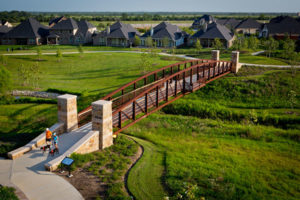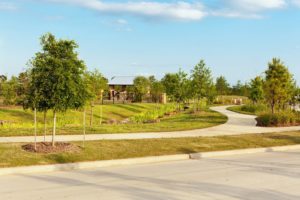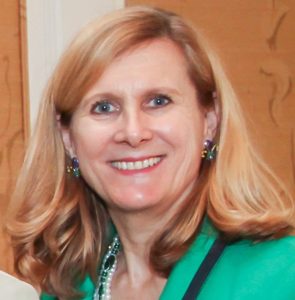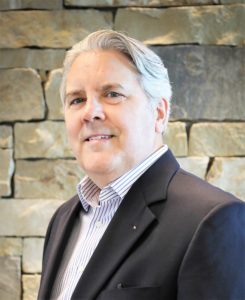
Cross Creek Ranch

Cross Creek Ranch
Houston Wilderness and Cross Creek Ranch, along with the West Houston Association held a virtual session on October 22nd that highlighted the importance of using recreational facility bonds to support development of projects that provide environmental and flood resiliency benefits in masterplan communities, and other municipal utility districts.

Deborah January-Bevers of Houston Wilderness
Deborah January-Bevers, President/CEO of Houston Wilderness introduced the session as part of the organization’s Master Planned Community Environmental Experience Events, or MPC E3 series.
These events are designed not only to “provide an opportunity to highlight the amazing natural areas of these masterplan communities, but also to highlight how they go about creating green space,” said January-Bevers.
The event included a video presentation about the work being done at Cross Creek Ranch in Fulshear. In the video, January-Bevers outlined Houston Wilderness’ goals under the 8-county Gulf-Houston Regional Conservation Plan to increase protected/preserve land and carbon sequestration in the Houston region, as well as enhance nature stabilization through projects like stormwater management.

Rob Bamford
The Johnson Development Co.
In meeting these goals, she said it was important for municipal utility districts (MUDs) and MPCs to work together and use all available resources to provide both environmental and recreational benefits to the public. She called Cross Creek Ranch “a beautiful example” of what could be accomplished.
Rob Bamford, General Manager of Cross Creek Ranch and WHA Quality Planned Development Committee Chair, said the 3,200-acre community is currently home to about 4,100 families, with an eventual goal of increasing to around 6,000 homes.
Along with amenities like extensive trail courses, open sports fields and a dog park (Canine Commons), Cross Creek has created 400 acres of lakes and polishing ponds, revitalized 136 acres of Flewellen Creek, planted tens of thousands of native trees, and invested in an irrigation system that almost exclusively uses reclaimed water.
These projects have created recreational value for residents, but also the environment. “What we’re trying to achieve is being authentic to the native conditions of the Katy prairie, and we believe we’ve accomplished that, and hope that it will continue to flourish.” Bamford said that Cross Creek Ranch and other master planned communities would benefit from more access to park bonds, a major resource in the local toolkit for these types of projects. “I thank you again for your consideration in this effort to encourage our legislators to support the additional room in park bonds for masterplan communities.”

Howard Cohen of Schwartz, Page & Harding
Howard Cohen of Schwartz, Page & Harding and WHA Government Affairs Committee Vice Chair, explained that current 1% limit for recreational facility with bonds came out of legislation passed in 2003 that permitted parks and recreation projects to be funded through property-tax supported bonds.
The legislation and subsequent constitutional amendment was limited to 10 counties, most in the Houston area. Because the Legislature wanted to make sure water districts remained focused on the core infrastructure, it decided that “a district can issue bonds up to 1% of its taxable value within its boundaries.”
Cohen said the projects funded under the park bonds had been “wildly successful,” but limitations are hampering communities from realigning the full benefit of expanded green space initiatives.
He hoped that the Legislature might relax the cap to allow for the development of more green and blue spaces that will provide increased flood resiliency, environmental and community benefits.
 About the Author
About the Author
Lawanda Maxwell, MBA has ten years of experience in business marketing and is the Communications Manager of the West Houston Association, She oversees branding/messaging, marketing projects/sub-committees, and all external communications. She has a passion for education and community-based initiatives and infuses the two as an adjunct professor. Maxwell leads WHA’s efforts on its websites, blog, social media, publications, public relations, and messaging and is an important contributor to WHA’s initiatives, events, and member engagement.
